

Zunyi’s plan to attract outdoor enthusiasts with exclusive whitewater rafting, cycling, and hiking routes
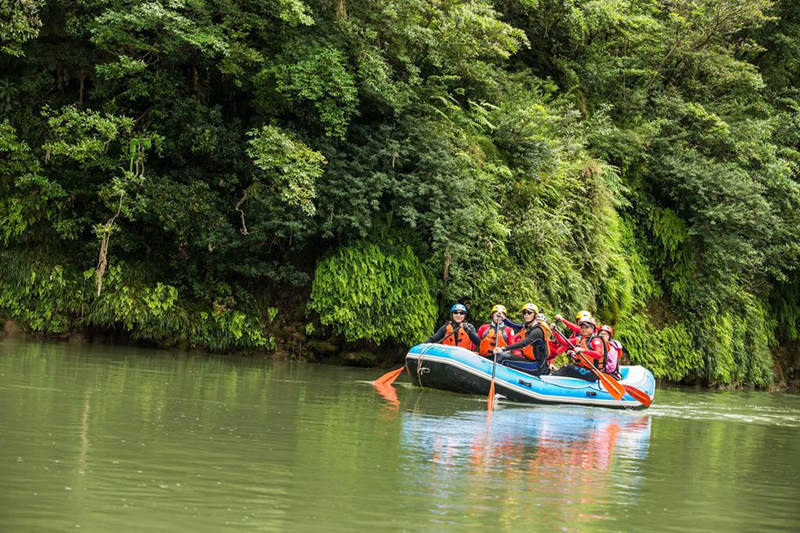
(Photo/Courtesy of outdoor photographer Tie Gai)
Zunyi, a city famous for holding a historic meeting during the Communist Party of China’s Long March, boasts the nation’s first bicycle tourism trail in its unique, eco-friendly tourism development blueprint that also aims to alleviate poverty.
Addressing a seminar held in Fuxing Township of Zunyi, southwestern China's Guizhou province, on April 28, Wang Qian, general manager of a Zunyi-based bicycle tourism company, said that the city wants to design travel in a “scientific and reasonable” way that helps protect the environment.
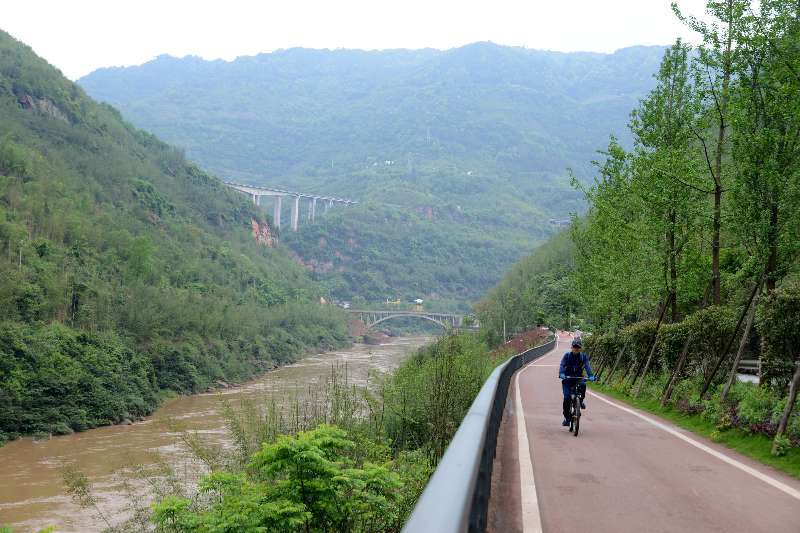
(Photo/Courtesy of Chen Jun)
The company, which is affiliated with the Zunyi Tourism Industry Development Group, operates a 160-kilometer-long exclusive cycling route along the Chishui River, which began operation in April 2016.
With a synthetic track and emergency telephone booths along the way, the three-meter-wide route is completely separated from automobile traffic. There are 30 bike rental stands, 12 courier stations, and two camping sites for people touring with their cars along the 4.5-billion-RMB cycling route.
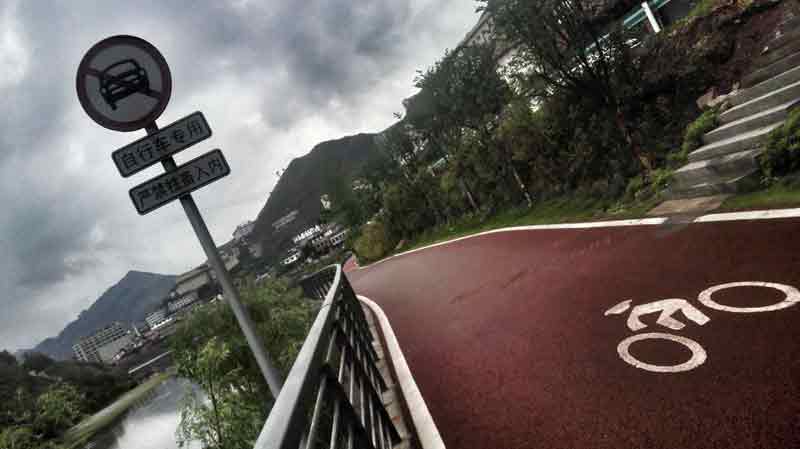
(Photo/Courtesy of Zhong Yu)
A different mode
Liu Song, a senior specialist with WWF China, told the seminar that Chishui River is the only tributary of the Yangtze River without dam construction. Within its drainage basin, there are three national-level natural reserves--two at the provincial level and seven at the county level--making the region extremely important.
According to Wang, the company built the cycling route with minimum damage to the local environment. It was built on already built roads and plants and trills on the hills were left untouched. In fact, more than 600,000 plants spreading across 700,000 square meters of land were added near the route.
“The bottom line is we need to learn from our predecessors and preserve natural scenery. As a latecomer, we will gain more strength from others’ experience. Our goal is to develop fewer natural resources and save more for future generations,” Wang noted.
“It’s touching to see basic infrastructure development without causing great damage to nature,” said Dr. Sun Qingwei with the National Geographic Society at the seminar.
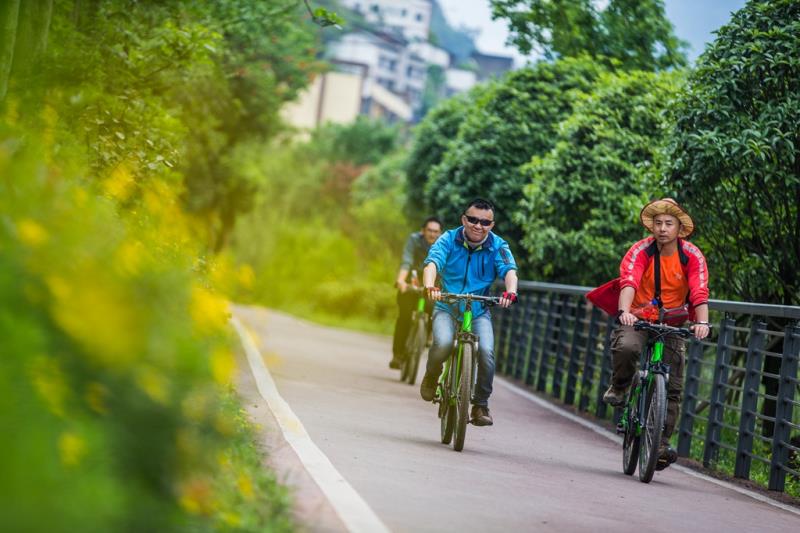
(Photo/Courtesy of outdoor photographer Tie Gai)
Beyond protection
As one of the poorest provinces, developing tourism can also help local communities shake off poverty. According to Wang, the development has brought opportunities to some 50,000 people in 12 villages and townships along the route.
In 2016, the scenic area of Chishui River received a total of 9.2 million tourists and total tourism revenue reached 7.63 billion RMB, up 26.7 percent. Tourism products sales also topped 320 million RMB.
“In the past some villagers could only travel on foot or on horseback. Some of their homes are a hundred years old. We have maintained the old buildings and turned them into attractions for tourists or renovated them as hostels,” Wang explained.
Wang raised an example of how his company turned a family workshop making brown sugar into a souvenir and local artisan demonstration, which not only helps preserve traditional skills but also helps bring more income for local families.
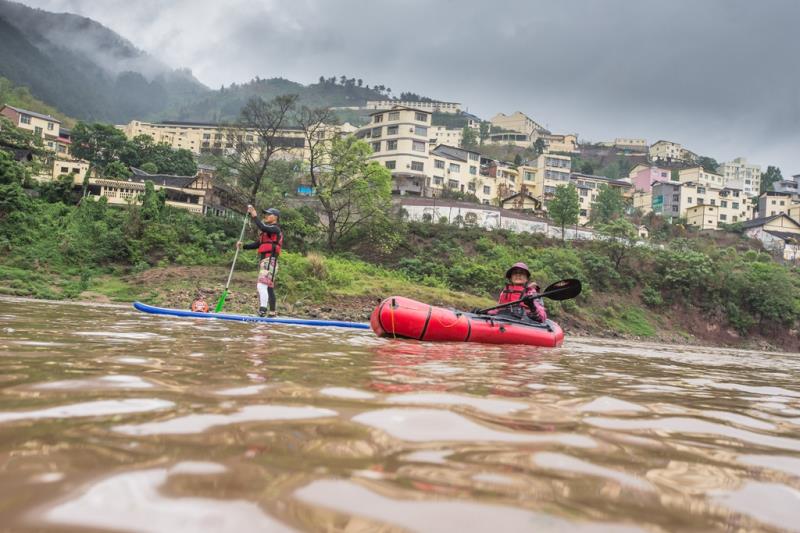
(Photo/Courtesy of outdoor photographer Tie Gai)
Brace for crowds
Unlike other scenic spots where the whole area is open to the public with a busy and crowded tourist center and noisy restaurants, Wang’s company only develops travel plans for specific groups of travelers to avoid potential damage of the environment.
“The scenery is the origin of our revenue. Only some projects will be open to select travelers,” Wang said. For example, the company is mulling over the idea of launching whitewater rafting on the part of the Chishui River and developing an outing route for outdoor enthusiasts.

(Photo/Courtesy of outdoor photographer Tie Gai)
People are increasingly searching for pleasure on a higher level, beyond entertainment through simple sightseeing and food tasting, said Liu Tuanxi, founder of Kunming-based outdoor activity training center The Nature School.
Liu, more widely known among Chinese outdoor explorers as “little donkey,” said that deeper interactions with the nature, such as whitewater rafting, can make one feel more alive.
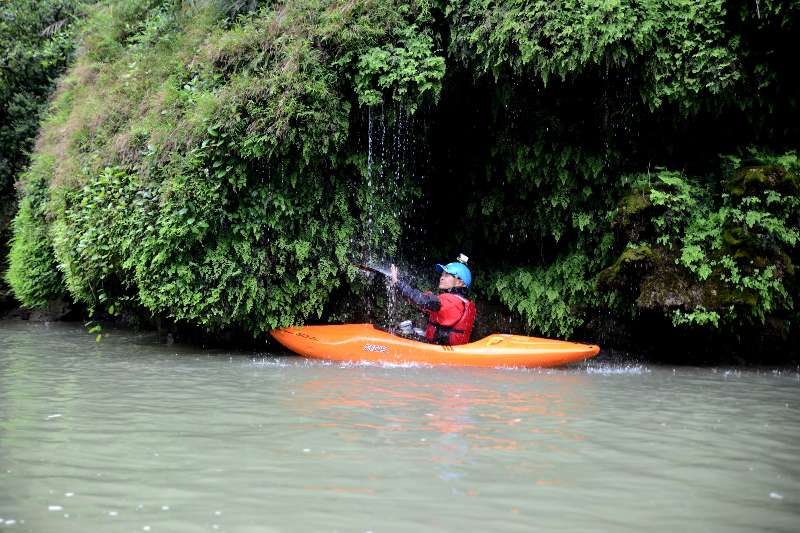
(Photo/Courtesy of Chen Jun)
But threats to the local environment persist, even with a targeted customer group of outdoor enthusiasts.
Zhang Boju, secretary-general of Beijing-based NGO Friends of Nature, brought of the example of marathon running, which is attracting more participants in China. The number of marathons and marathon runners have rose to 195 and 1.5 million in 2016, from 22 and 400,000 in 2011, respectively.
“Sound environmental protection measures must be guaranteed as the region steps up efforts to boost tourism and welcome more tourists in the near future,” said Yang Yong, a noted independent geologist.
Zhang also warned of the accumulation effect as a marathon with tens of thousands of participants could leave six times of the daily average of garbage per person. “We are promoting the ‘Leave No Trace’ principle to marathon runners to minimize their impact on the environment. That principle can be applied to whitewater rafting too,” he said.
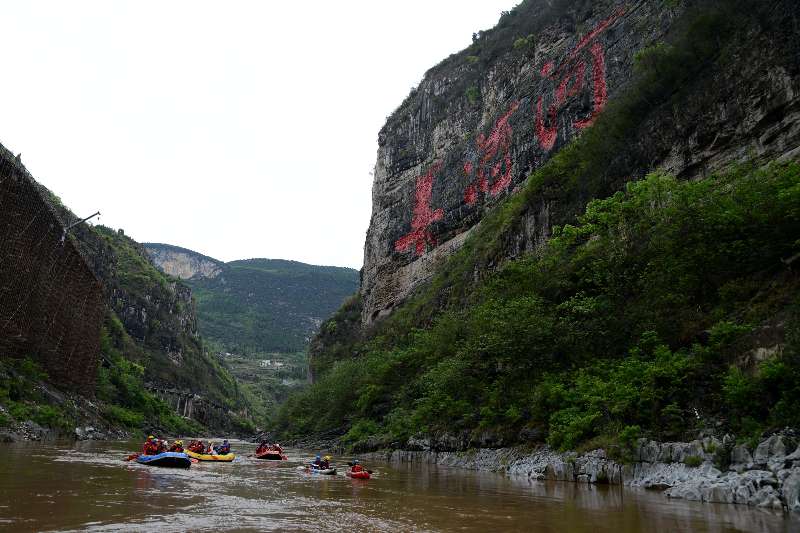
(Photo/Courtesy of Chen Jun)